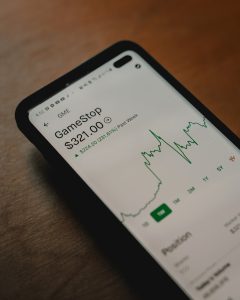Forex, or foreign exchange, refers to the trading of different currencies in the global market. The forex market is influenced by a variety of economic factors, including GDP, or gross domestic product. GDP is a measure of the total value of goods and services produced in a country over a certain period of time. When GDP goes up, it can have a significant impact on the forex market.
There are several ways in which GDP affects forex. Firstly, when GDP goes up, it usually means that a country’s economy is growing. This can lead to increased demand for the country’s currency, as investors and traders seek to invest in the country’s businesses and industries. As a result, the value of the currency can go up, leading to higher exchange rates.
Secondly, a higher GDP can also lead to increased trade and investment between countries. This can lead to a higher demand for the respective currencies, as businesses and investors need to buy and sell currencies to facilitate international trade and investment. This can also lead to higher exchange rates.
Thirdly, a higher GDP can also lead to a stronger economy, which can in turn lead to higher interest rates. This can make a country’s currency more attractive to investors, as they can earn higher returns on their investments. This can also lead to higher exchange rates.
However, it is important to note that the relationship between GDP and forex is not always straightforward. There are many other factors that can influence the forex market, including political events, central bank actions, and global economic conditions. Therefore, it is important to consider these factors as well when analyzing the impact of GDP on forex.
For example, political instability or uncertainty can lead to a decrease in demand for a country’s currency, even if its GDP is increasing. Similarly, if a country’s central bank decides to lower interest rates, this can lead to a decrease in demand for its currency, even if its GDP is increasing.
Furthermore, global economic conditions can also influence the impact of GDP on forex. For example, if there is a global economic downturn, this can lead to decreased demand for all currencies, regardless of the individual country’s GDP.
In conclusion, GDP can have a significant impact on the forex market. When GDP goes up, it can lead to increased demand for a country’s currency, higher exchange rates, and increased trade and investment. However, it is important to consider other factors as well, such as political events, central bank actions, and global economic conditions, when analyzing the impact of GDP on forex.





